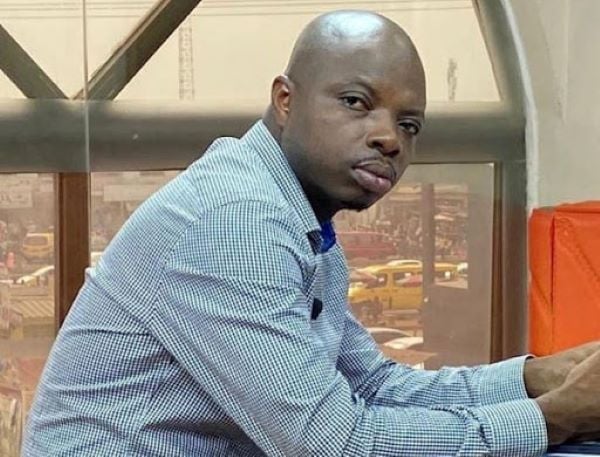The arrest of Kwame Baffoe, the Bono Regional Chairman of the New Patriotic Party (NPP), also known as Abronye, has been met with approval by Francis Obeng, the Deputy Constituency Organiser of the National Democratic Congress (NDC) in Tain, Bono Region. Obeng characterized the arrest as a necessary step, citing Abronye’s history of unrestrained “reckless and inflammatory” remarks in the media. He emphasized the widespread positive reaction to the news within the Bono Region, where many residents viewed the arrest as a triumph for responsible public discourse and a testament to the prevailing rule of law.
Obeng commended the NDC government for upholding legal principles and ensuring accountability, dismissing any notion of political motivation behind the arrest. He stressed that the action taken against Abronye underscored the principle of equality before the law, demonstrating that no individual, regardless of political standing or influence, is exempt from legal consequences for their actions. This, he argued, serves as a vital reminder in a democratic society that everyone is subject to the same legal standards.
The NDC official further emphasized the importance of this case as a deterrent against the misuse of media platforms for disseminating harmful and divisive rhetoric. Obeng highlighted the potential damage caused by the spread of falsehoods, insults, and inflammatory language, particularly by public figures who wield considerable influence and can shape public opinion. He argued that holding individuals like Abronye accountable is crucial to maintaining a healthy and productive public discourse, free from the corrosive effects of misinformation and hate speech.
Obeng urged authorities to ensure a thorough and impartial legal process, allowing the case to proceed to its natural conclusion without undue influence or interference. He insisted that Abronye should face the full legal ramifications of his actions, emphasizing that this would not only serve as a personal lesson but also send a powerful message to other public figures who might be tempted to abuse their platforms. The emphasis on due process, Obeng argued, strengthens public trust in the legal system and reinforces the principle that accountability applies to everyone.
This incident underscores the broader debate surrounding freedom of speech and its responsible exercise, particularly in the context of political discourse. While freedom of expression is a cornerstone of democratic societies, it comes with responsibilities. The line between protected speech and speech that incites violence, spreads harmful misinformation, or defames individuals is often contested. Abronye’s arrest has brought this debate into sharp focus, highlighting the challenges of balancing the right to free expression with the need to protect individuals and society from the damaging consequences of irresponsible speech.
The case of Abronye serves as a crucial case study in navigating the complexities of free speech in the digital age. The proliferation of social media and online news platforms has amplified the reach and impact of public figures, making responsible communication even more critical. The rapid dissemination of information, while offering opportunities for wider engagement, also presents heightened risks of spreading misinformation and harmful rhetoric. This incident underscores the need for ongoing dialogue and the development of clear legal and ethical frameworks that address the challenges of free speech in the 21st century.














